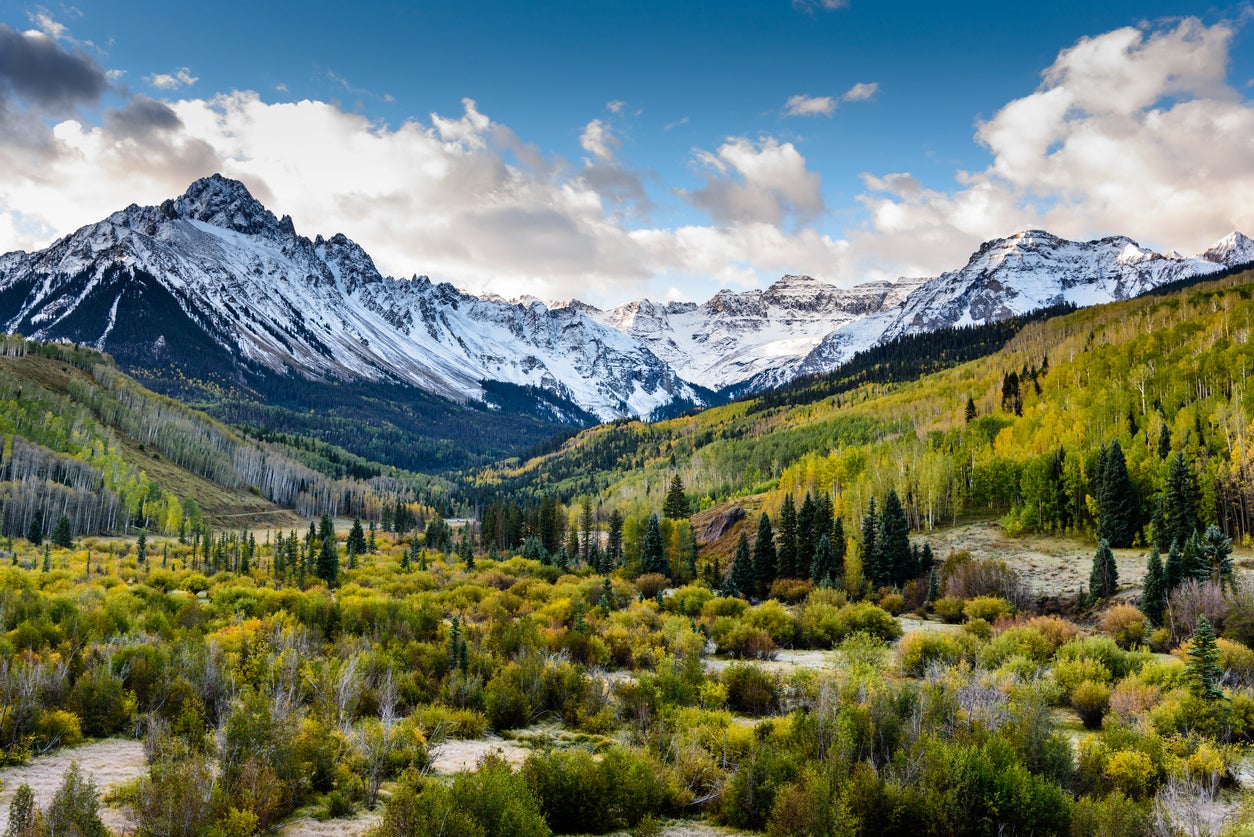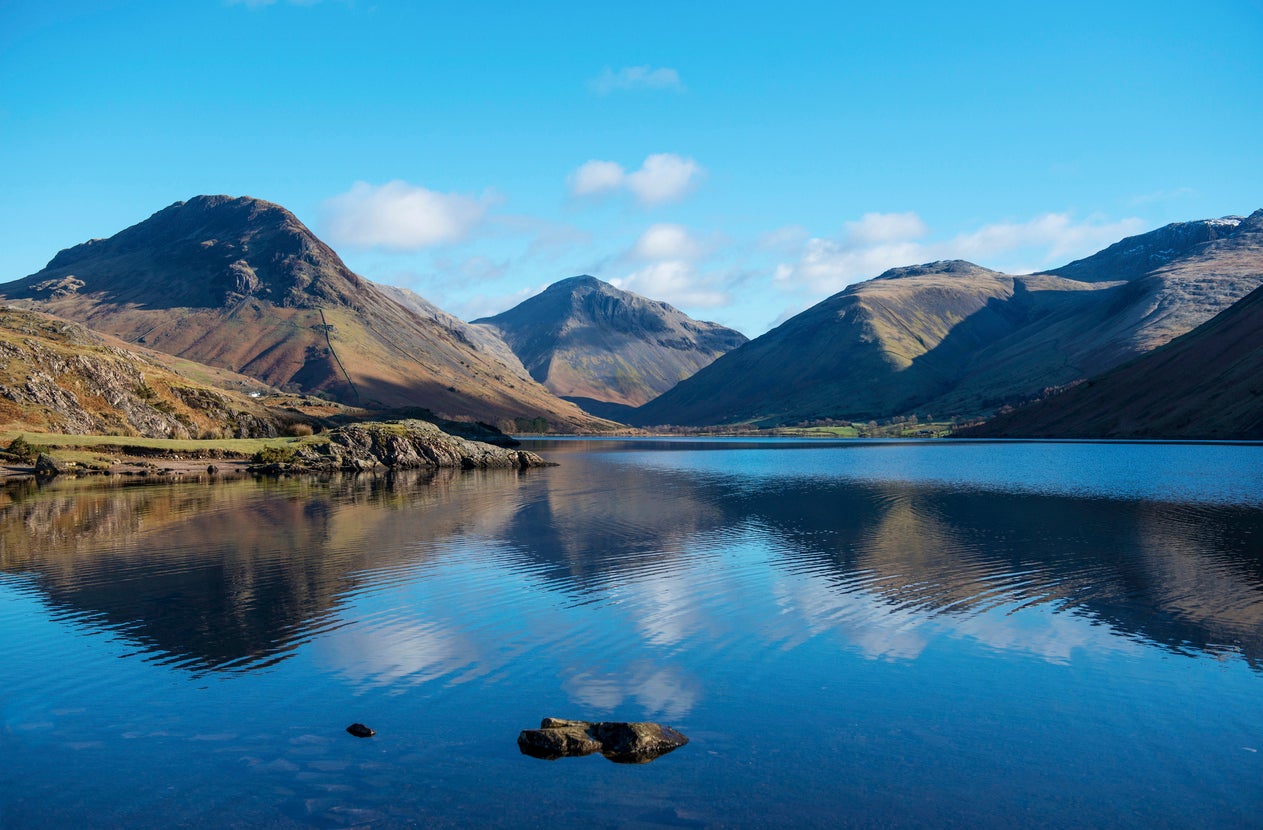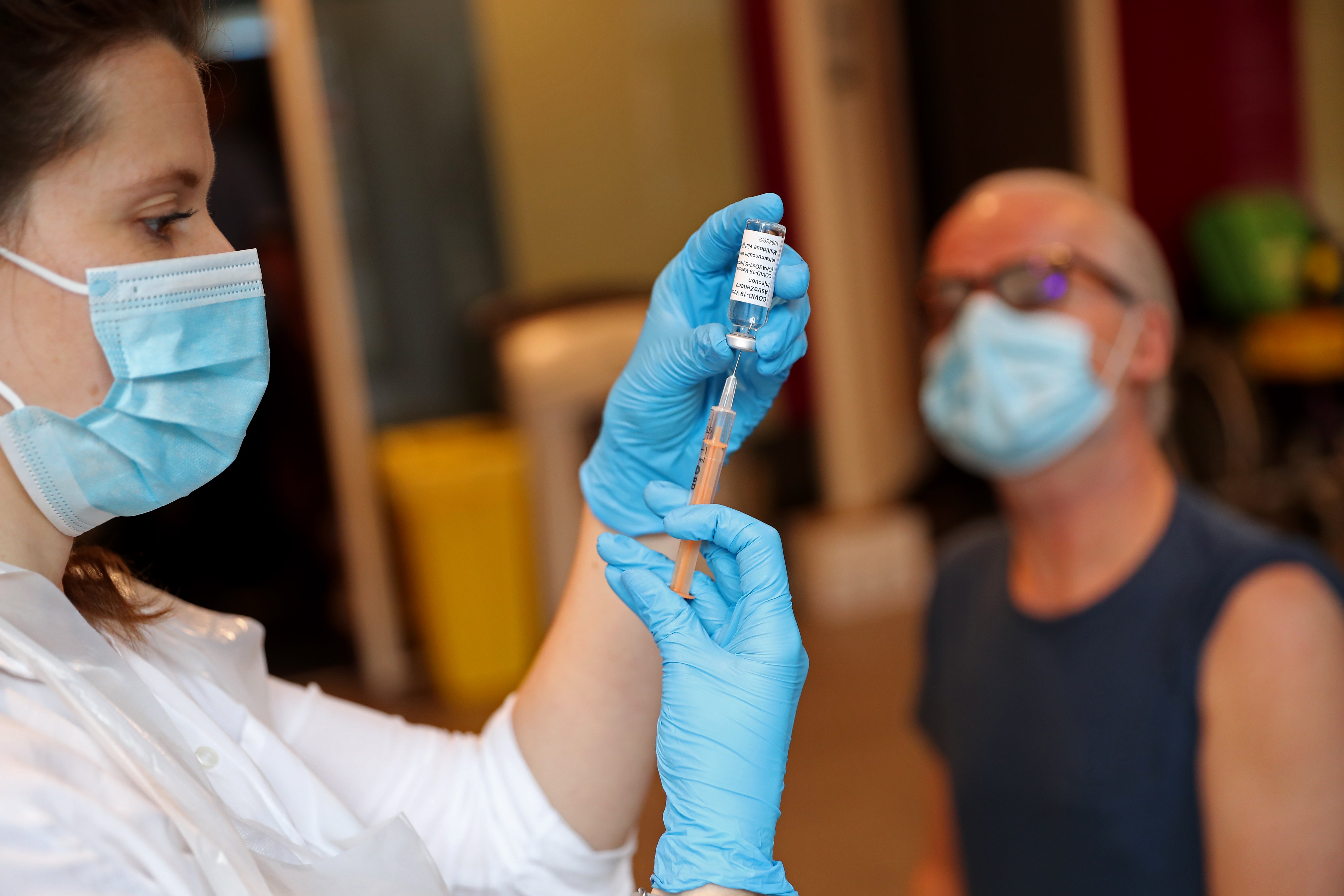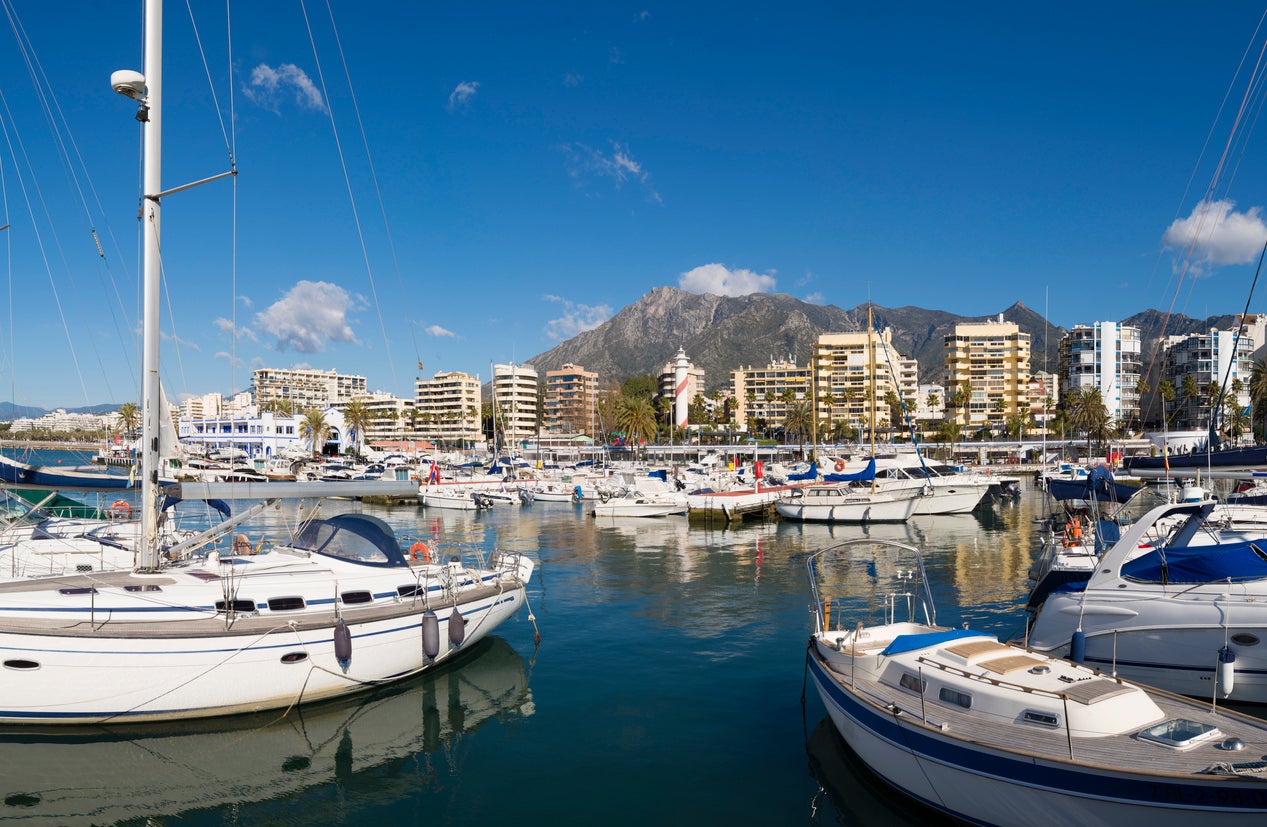Can I travel to the US with a working visa despite the travel ban?
Simon Calder answers your questions on border restrictions and vaccine passports


Q I am self-employed and have a client in Colorado who needs me to do some work there as soon as possible. I have a working US visa.
I understand it is impossible for people to travel direct from the UK to the US unless they are Americans. The client is prepared for me to effectively quarantine in Mexico for two weeks. Could that work?
Name supplied
A There is no sign of any easing the current presidential proclamation that bans non-US residents who have been in the UK in the past two weeks, so travelling via a third country is the only option. And Mexico is one of the most agreeable places to spend the necessary 14 days.
But several regulatory hurdles need to be crossed. The first, for which you would clearly satisfy the rules, is leaving the UK: if your international journey is starting from England you will need to complete a Declaration to Travel – the new form for which you need to demonstrate that you are flying for essential purposes. Work is an exemption; ask your client for a letter confirming your engagement.
Next, you will need to find a route to Mexico that does not involve going via the US; as you know, there is no option for international transit at an American airport without going through immigration and customs. British Airways is flying nonstop twice a week from Heathrow to Mexico City.
To enter Mexico there is no need to take a test before departure or undertake any form of quarantine. You will need to complete a health declaration form online at afac.hostingerapp.com. It will generate a unique QR code that will be scanned on arrival.
Mexican states have different rules, but the main holiday areas around Cancun, Puerto Vallarta and Cabo San Lucas are reasonably relaxed. You will also need to follow “the main precautionary measures” in Mexico, which the government says are: “Wash your hands frequently with soap and water; go to the doctor only in case of an emergency; cough or sneeze into your elbow; do not spread fake news.”
Before travelling on to the US, you must present evidence of a negative Covid-19 test taken within three days of departure (or proof of recovery from the virus within the last 90 days). This will be checked at the Mexican airport before you fly to the US; the land border is currently closed.
In Colorado, there are no specific state quarantine restrictions for arrivals from Mexico (or anywhere else), but “non-essential travel is not recommended”. Again, your journey will be regarded as essential.
Returning home, you will need under current rules to self-isolate at home for 10 days – though in England this can be cut in half with a negative Covid test after five days.

Q Now being retired, I’m often travelling around Britain as a solo traveller. However I find it very frustrating to be quoted what I consider over the odds rates for single occupancy. For example, if a room is available at £120 double (ie £60 each), single occupancy might be £100. So I attempt to find B&Bs that can offer me a single room.
At times I have been most fortunate to find great places around the country that fit my bill, and my wallet, but more often or not I struggle. Can you offer any tips? Whenever I enter “inexpensive B&Bs” or “single-room accommodation” in my search, I always seem to get the usual suspects (Hotels.com, etc). I’m sure there are thousands of people like myself who experience similar difficulties.
Bob B
A Over the years I have heard many similar complaints about the iniquities of hotel pricing for solo travellers. It is really frustrating that travel costs can be significantly higher for people on their own. My technique is quite straightforward. Ideally I consult guidebooks (still going strong) or ask for recommendations from friends or family. I then telephone the hotel or B&B, explain my requirements and see what they can offer to a solo traveller that might ease the financial burden.
Sometimes, especially at times of high demand, eg the Scottish highlands in July, the answer is a polite, “No negotiation – we know we can sell out for that night and therefore we’re not doing any deals”.
But at other times I find hotels – particularly smaller, family-run properties – open to discussion. They especially welcome people who book direct rather than going through online booking intermediaries, who typically take at least 15 per cent of the room rate, and are often open to cutting rates or (better for them) adding complimentary breakfast if this is not included in the original rate.
After the coronavirus pandemic, in which UK hotels have sustained horrendous losses, I foresee two developments. The first is that they will understandably seek to cash in on demand when it is strong – quite possibly raising the price of that £120/£100 room by £30 or £40 if the market will bear it.
The converse, though, is that they will be eager to attract as wide a clientele as possible in off-peak times, and therefore may start tailoring deals especially to entice the solo traveller – such as including dinner with your bed and breakfast.
I hope that you and everyone else who wants to travel the UK will soon be able to resume.

Q I have just had my first AstraZeneca vaccination. I was given the little card with details of the vaccine, including the batch number and the date, and my name. The trouble is: my “NHS name” has my married surname, while my passport has my maiden name. Will I still be able to travel this summer?
Name supplied
A Undoubtedly – but the exact bureaucratic hurdles you will have to cross are far from clear at this stage. While the UK and many other countries are talking increasingly energetically about some kind of digital proof of your Covid status, we are far from any international agreement. That there is lots of talk but not much action is unsurprising, given the spectrum of issues a vaccine passport raises. Some are ethical: from the troubling prospect of a society in which some options are closed to those who have been unvaccinated, to concerns about having personal medical data stored in a form accessible to airlines and nations worldwide. Others are technical: what is the optimum format, and how does Mr X or Ms Y provide proof of their vaccination status?
Your case, in which your vaccine evidence is for Ms Y but your passport is in the name of Ms Z, is one of the details that will need to be addressed; rest assured there will be many thousands of people in a similar position.
My strong sense is that, in the short term for European trips, it will make very little difference. In the absence of any international agreement, at least some countries for whom vaccination status is a concern will probably make do with the NHS jab card – and in your case you would simply need to take your marriage certificate to, well, marry the certification to your passport.
I believe a significant number of destinations – such as Cyprus and Greece – may simply apply relaxed rules for people arriving from the UK because, by summer, we will collectively be deemed not to represent much of a threat.
Longer term and longer haul, vaccine passports will probably become essential for journeys to low-Covid nations in Asia and Australasia. But since such countries are likely to be closed to arrivals from Europe for many more months, you will have plenty of time to align your status.

Q I have been battling with an online travel agent for the past seven months over a cancelled package holiday to Spain. In October 2019 six of us booked to Marbella for late August 2020, and paid £1,500 as a deposit. As you may remember Spain was put on the no-go list in late July. This happened just before we were due to pay the balance of just under £2,900. Obviously I didn’t pay the balance. The holiday firm then sent a cancellation invoice and have basically kept the deposit.
Surely, since we were unable to travel, we should get some money back? So far we have been refused.
Name supplied
A Sorry to hear about your predicament. There are two separate issues here. The first is that the Competition and Markets Authority (CMA) expects holiday companies who sell packages (flights and accommodation in the same transaction) to refund customers who cannot travel because the UK government warns against the destination – as the Foreign Office did for Spain from 25 July 2020. “The CMA expects that consumers who are entitled to refunds will be paid those refunds, and that businesses will comply with consumer law,” the authority says.
The second issue, and no doubt the reason the travel firm cited for declining a refund, is that legally you withdrew from the contract by not paying the balance. At the time you withheld the £2,900, there was a slim possibility that the Foreign Office decision about Spain could have been reversed, allowing you to travel. The fact that mainland Spain has remained on the no-go list ever since is not material, the company will argue: you acted precipitously and that’s the end of its liability.
You can counter by saying that, with rapidly escalating coronavirus cases in Spain, there was no likelihood of the holiday happening. So you sensibly took steps to mitigate the amount in question by declining to pay the balance.
It may take legal action to decide who is right, or the CMA may rule one way or the other about the entitlement in your position – which is far from uncommon. Those options will take time and may not necessarily resolve to your advantage; so I suggest you seek recompense from travel insurance, assuming you took it out at the time of booking. A pre-pandemic policy may offer some hope.
Email your questions to s@hols.tv or tweet @simoncalder



Join our commenting forum
Join thought-provoking conversations, follow other Independent readers and see their replies
Comments